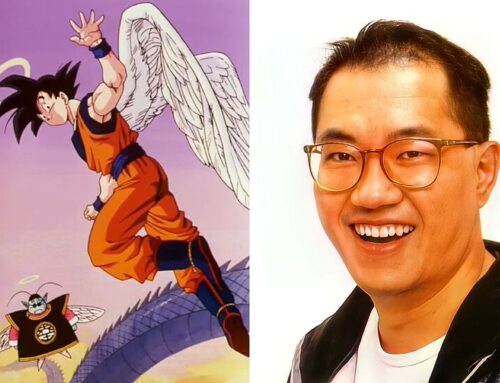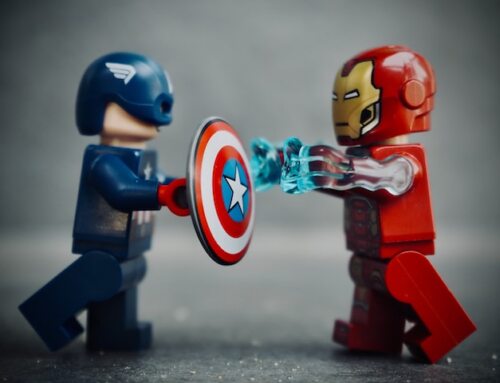Cancel Culture, mob rule, progressivism… the list of potential horrors that many fear will ruin the West goes on.
I have a theory that these attitudes come from (or perhaps are cultivated by) deeper, intrapersonal issues. We are, increasingly, a disconnected and insecure culture that resists pain and insists on fulfillment.
Ever hear the phrase “hurt people hurt people”? Many of us are hurt and refuse to grow from our pain. When you have leftover hurt, you look for the proverbial morphine or band-aid – the quick solution that doesn’t actually heal anything.
But sometimes hurting means feeling the pain, or the pain getting worse before it gets better. Instead of dealing with the real issues, we simplify and go for the quick fix. Perhaps we’d also like revenge on others since we perceive them as a kind of stand-in villain for someone who abused or hurt us, like the man who hates all women because a few have rejected him.
In these ways, hurt mentalities that refuse to grow up and smell the burnt coffee of the real world rule us and our choices.
The West, it seems, is on a dark path.
Negativity Bias and Laziness Are a Bad Combo
The all-access digital age is a double-edged sword. We can know what we want when we want it: great. But I also see all the stuff I don’t really like: the death, the tragedies of the world. My very human negativity bias means I’m drawn to that stuff, even if it’s not what I like.
Negativity bias also means that it’s advantageous for media outlets to show the worst of the worst, building false narratives that incite our emotions – and keep us watching.
Throw laziness into the mix – and who can blame us, really, when the news only shows you the problems and you want to fix them – throw laziness in and you’ve got the rules set for a real ugly round of the blame game.
In a nutshell: negativity bias and laziness combine to make us highly reactive to situations that require cool heads – such as perceived injustices that are actually complicated situations.
That means that when I see five stories of unarmed black folks being killed by police officers, that’s all I see. They don’t tell me that these stories are uncommon, statistically, nor do they give me the context of the shooting. My narrative builds, capturing my heart – for good reason! – despite not having all the facts.
[RELATED: Malcolm Gladwell’s Revisionist History episode for interesting insights on police shootings.]
The Devil is in the Disagreements
Every narrative has a villain, but we tend to put ourselves in the hero position. Those who oppose our narrative, then, are siding with the villain and thus become villains, since we’re too lazy to think, “oh they just disagree, let’s hear them out.”
That’s a problem that we should avoid, and what free speech and democracy are intended to subvert.
The problem escalates: the so-called villains grow resentful since we have grown unreasonable. As we oversimplified, they too oversimplify. True, democratic dialogue becomes increasingly difficult and rare.
Things escalate further: What do we do with villains? Labels, censorship. If that doesn’t work, throw them in jail.
You see where this is going.
Things start to get scary when these oversimplifying vilifiers have actual power. Nazi ideas are one thing; Nazis in power is something else entirely, especially if you are, to the Nazis, one of those oh-so villainous Jews.
From Big Tech censorship to compelled speech laws, the West isn’t as far as you’d think from having its democratic freedoms taken away.
That said, I don’t think we’re too far gone.
The End of Identity Politics?
In 2020, Donald Trump scored the largest non-white vote in 60 years for Republicans. That tells me that even minorities in America are seeing through the simplistic, shallow arguments of Leftist politics for what they are.
Many intellectuals and thought leaders are challenging the prevailing mindset. The Open Letter on Justice and Debate in Harper’s Magazine was a step in the right direction.
People are talking; podcasts and YouTube videos are allowing long-form discussion on major issues, and the short, simplifying news media format is dying.
Narratives are exposed and challenged. We’re asking better questions and, with time, coming to more precise conclusions. Many are moving from the over-confident stage of learning to the “oh crap, maybe things are more complicated than I thought” stage.
Tactical Empathy
Another reason for optimism: I think that reasonableness is going to prevail through empathy and understanding. As I said, people are talking to each other; they’re also listening and trying to understand. We are humanizing, rather than vilifying.
Surprising things happen when you listen to those you disagree with. Sometimes, you find out that you have a lot more common ground than you thought.
I just picked up an audiobook by Chris Voss – Never Split the Difference – and it sounds like his key negotiation tactic is empathy.
Empathy? For hostage negotiations?
Empathy has the power to disarm people. It’s humanizing. It cuts through the emotional baggage and insecurities that make us reactive, allowing us to relax and deal reasonably with the problems at hand.
Cooler heads.
All of this makes me more hopeful that, in spite of the prevalence of false, doomsday narratives, we’re heading in a good direction. A more humanizing one, too (see below).
Hear me, then, if you’re a self-identifying liberal, Marxist, progressivist, leftist, or the like. I want to understand, and want to talk to you about it. Comment below or DM me.
Maybe this post is my own personal wake-up call: time to start having these conversations with the people I disagree with. Bring on the discomfort of possibly being wrong about something.






